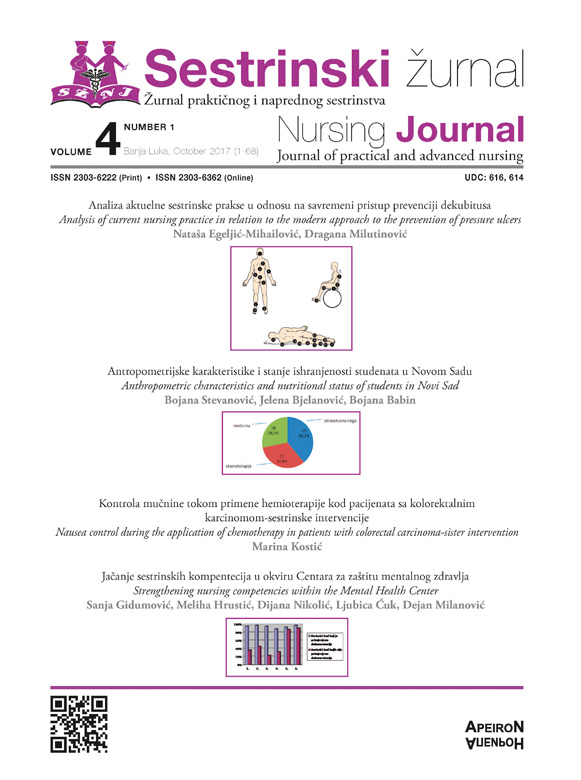Nausea control during the application of chemotherapy in patients with colorectal carcinoma-sister intervention // Kontrola mučnine tokom primene hemioterapije kod pacijenata sa kolorektalnim karcinomom-sestrinske intervencije
DOI:
https://doi.org/10.7251/SEZ0117042KAbstract
Colorectal carcinoma is the third malignant disease in the number of newborns in the world population, following lung and breast cancer. Colorectal cancer is more common in males and has a worse prognosis. With operative therapy, the use of chemotherapy is dominant, where the main undesirable effect of nausea and vomiting occurs. The patient’s health care during the application of chemotherapy involves the collection and consideration of all factors that can aggravate the adverse effects of chemotherapy.
In this study, the main goal of the study is to investigate the degree of patient education, their knowledge of the techniques of overcoming the feeling of nausea and the proper procedure during the course of vegetation, as well as the importance of education conducted by a nurse.
For the purpose of the research, a questionnaire containing questions of closed and open type was used.
The results of the study show that the majority of subjects (33%) are not familiar with non-pharmacological and pharmacological methods of suppressing nausea, while (32%) claim to know these methods or to know them partially. All (3%) respondents are fully familiar with these methods, which indicates that it is necessary to adequately inform the patient about all aspects of this problem.
Patients consider that nursing instructions are extremely important for patients (45%) and significant (42%). What tells us that continuous education conducted by a nurse has an effect in the treatment of patients with colorectal carcinoma.

